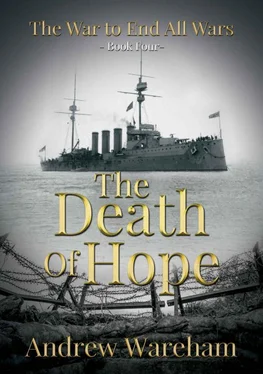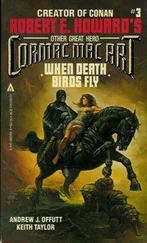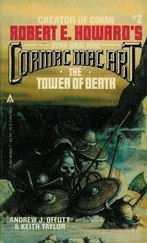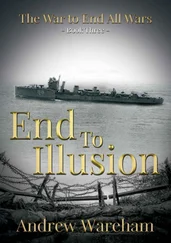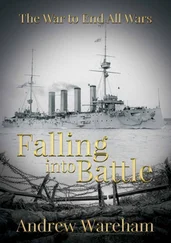There were any number of stones on display and the prices seemed less than Simon might have expected. A quiet word to the proprietor disclosed that the war had led to widows with children to keep and suddenly inadequate incomes.
“Several of the leading professional gentlemen of the town, sir, went off to war last August. It was quite the thing among them to join the Territorial Army before the war, almost a local club, one might say. Away they went and only too many will not come back again. Some. naturally, sir, have distinguished themselves and others are respectably commissioned now, having risen quickly from the ranks, as is only to be expected. At least a dozen of the town’s solicitors and accountants and surveyors and architects and such have fallen, sir. As a Naval officer, of some distinction, you may not be aware of the casualties the infantry have experienced. Three of my sons marched in August, sir. Two survive, one of them at home again, possibly for life, wounded.”
Simon had noticed the black band on the jeweller’s sleeve. He murmured appropriate words.
“Several of the ladies have found it necessary to sell their rings and necklaces and brooches. I have made it a policy to break them up so that the pieces might not be recognised and commented on. I would not normally hold a stock of the larger stones in the provinces, would send them up to London to be disposed of. So many have been put on the market that their price has fallen substantially in Town and it is as well to hold them here. I can place a most respectable brilliant on Miss Parrett’s finger, sir, at less than pre-war price.”
An hour and the stone was chosen and the ring commissioned to be ready in the following week. Simon made a note to speak to his uncle about precious stones. When the war ended, it was likely they would rise again.
His uncle agreed, thought it a clever notion.
“A young man to travel the county towns of East Anglia and then across the western parts. From Shropshire down into Hereford and Gloucester and into the West Country proper. Cash in hand will be welcome to jewellers who are finding more clients wishing to sell to them than buy. The Home Counties, closer to London, might not be so fruitful… It might be possible to sweep through the west and north of Wales and then into the rural parts of the North. We might put twenty or thirty thousand pounds out, Simon, having the advantage that the Inland Revenue will know nothing of the business. We could well sell quietly to the trade in as much as ten years from now. I can see a respectable profit there, Simon! Well thought, young man!”
Simon wondered just how large ‘respectable’ was, did not ask further.
“I do not have it in mind to remain in the Navy after the war, sir. I must bend my mind to consideration of business, I think.”
“Not necessarily, Simon. A number of years as a Member of Parliament followed inevitably by your translation to the House of Lords on my death would be the basis of a sound political career. You cannot ever be Prime Minister as it is accepted now that he must sit in the Commons. Foreign Secretary, second in importance, would be well within your reach. As a Cabinet Minister you would be in a position to serve country and family both. A distinguished wartime career with decorations for gallantry means that either Party would snap you up as a candidate – you could achieve a seat with no difficulty. Your grandfather would be much in favour of such a course, I know. He is a Tory, has slipped a good few thousand into party coffers over the last few years, so it will be easier to find you a seat in their interest – somewhere safe in the Shires with a massive majority so you will not have to worry about electioneering and such. You would not have to worry about an income either. Your grandfather and I would both see to the extra money you would need.”
It was an attractive prospect. With Alice at his side, all that a political wife should be, he could enjoy a busy and prosperous existence. He would also be known in his country – that might be attractive, he admitted.
“All I have to do is survive the war, sir, and my future is made.”
“You could leave Harwich, take a position in the Admiralty, Simon. Or at Scapa Flow, perhaps?”
He shook his head brusquely.
“No, sir. I have work to do in the boats. I cannot leave the job undone, step back to allow a lesser man to stand in my place. It sounds arrogant perhaps, sir. It is. I am still one of the best of the destroyermen and performing a task that others could not do so well. Duty, sir, drilled into me by the Navy and part of my very existence. I cannot refuse the task allotted to me.”
“I can only cry ‘well done’, Simon, and wish that you were less of a man. No, withdraw that, how could you be? You are what you are and I admire you for it. Your grandfather wishes to speak to you this week. Shall I arrange for Thursday?”
The old gentleman was as alert and upright as ever. Simon had a suspicion that he would die still at the height of his mental powers, sat at his desk having just completed a piece of work and able to give his attention to mortality, to accept that his heart had stopped.
“Coffee, Simon? My congratulations on your forthcoming marriage, my boy! A sound family, the Parretts. I have instructed my people to speak with their managers, give them a pointer or two to bring them into the circle of those who know what’s going on.”
Simon suspected that his father by marriage was about to become far richer. Not a bad thing.
“Your uncle suggests that you are thinking of a political existence, after the war that is.”
“It seems a sensible idea, sir. The Navy will have little for me, for having achieved too many promotions, too young. I am certain to become Commander within two years. Far too young for the peacetime sailors. I could expect ten years of polishing the brasswork and indulging in futility if I remained in the service. Post captain at thirty-five and then what to do with me? Five years to the command of a capital ship and ten to rear admiral, all the time giving orders to older men with many more years of service and regarding me as an upstart who had a lucky war. Better to enter another career entirely, sir.”
The old gentleman accepted the argument.
“Well thought. I agree. Better you should sit as a Conservative – not much difference between the major parties, after all, and I can find a good safe seat for you. There will be an election soon after the war ends. I shall see you become a Member then. If not me, in person, whoever sits in this chair will deal with the matter. My sons are aware of my mind on this. You will need a place in Town – more convenient than hiring rooms while the House is sitting. I shall see to that, and another in your constituency. Always goes down better if the MP is a local man, or appears to be for living in the area.”
Simon felt much as if he had stood in front of a steamroller. His life had just been packaged up neatly and tidily for him. All he had to do was show his face at the right place and correct time.
“Funny, sir. On my bridge, I am lord and master of all and command their comings and their goings…”
“And here, young man, you obediently say ‘aye aye, sir’ and do as you are told. I understand that I am somewhat brief in my ways. You have permission to tell me so, when necessary. As a Minister of the Crown, which you will certainly be before too many years have passed, you will have a duty to King and Country, Simon. I will make my voice heard, do not doubt that, but the final decisions must be yours. I shall not disown you in a fit of pique if you decide it is better to go against me.”
“I had worried about that, sir.”
“Do not. I may be a king of finance, I do not consider myself to be a Pope as well, infallible and to be blindly obeyed. Now then, Miss Alice Parrett, what sort of betrothal gift should I send her?”
Читать дальше
